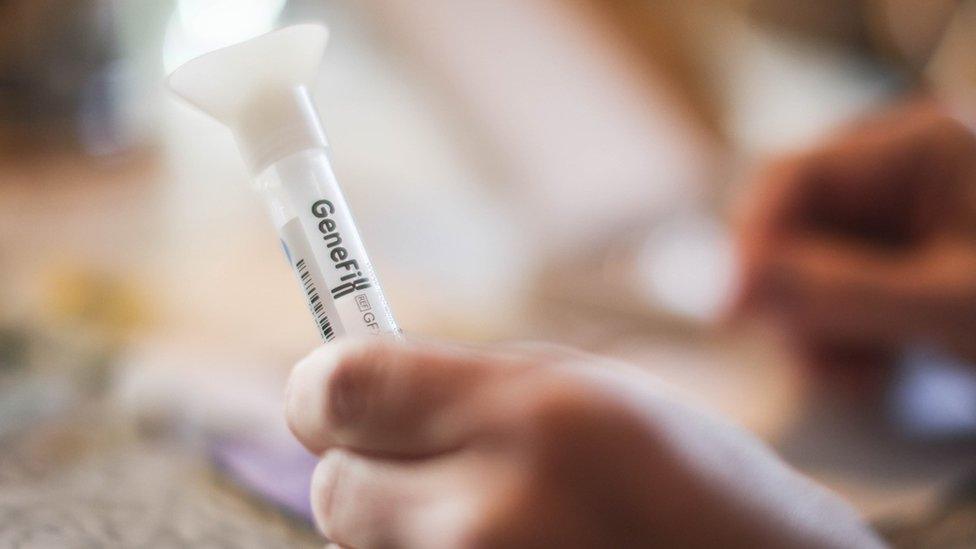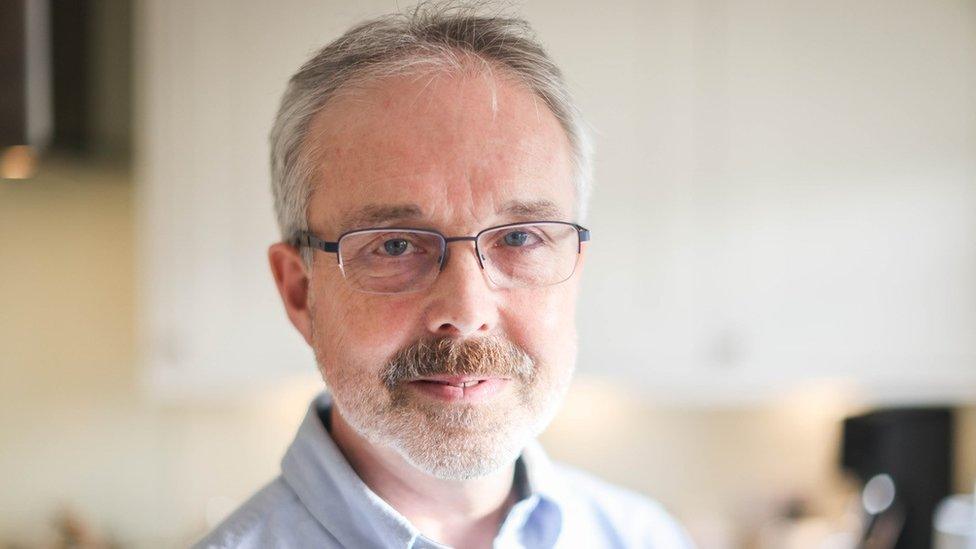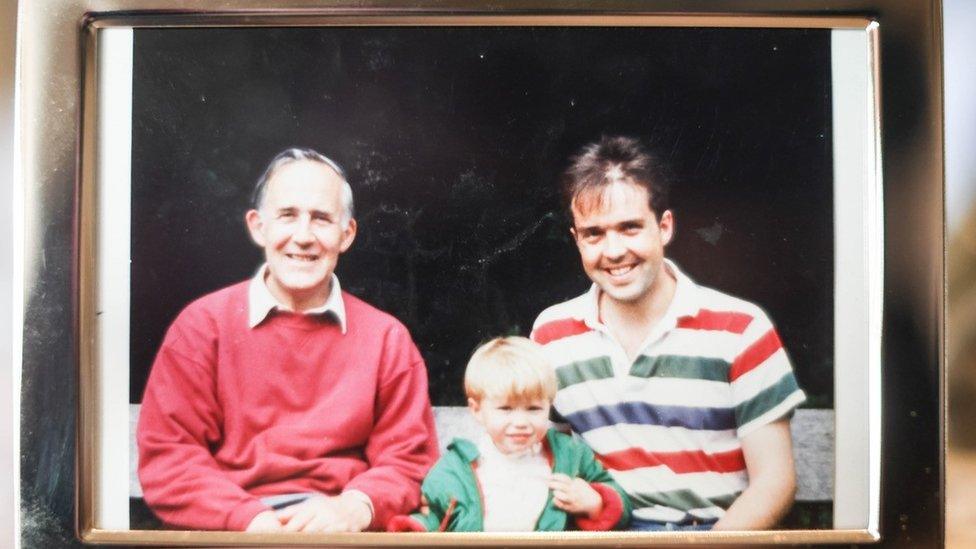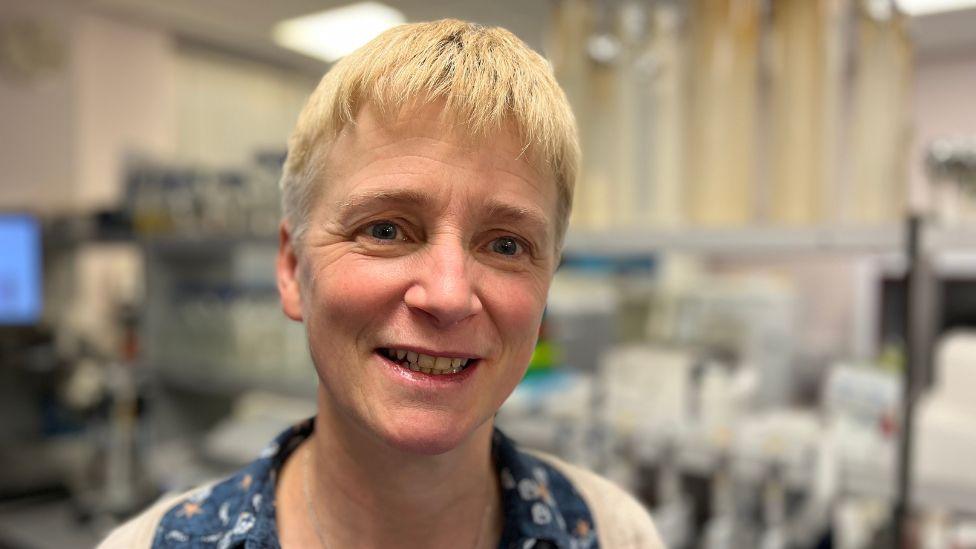Volunteers urged to sign up to mass Generation Scotland study
- Published

The study could shed new light on diseases and lead to new treatments
Thousands of volunteers are being sought to take part in a huge study looking at Scotland's health.
Participants will be asked to submit saliva samples and allow access to medical records - to help to understand the nation's health priorities.
The Generation Scotland study has run since 2006 and has helped to develop potentially life saving treatments.
More than 24,000 people already take part but researchers want to add a further 20,000.
The new call for participants is for anyone who is resident in Scotland.
The University of Edinburgh-led project is particularly keen to find whole families - from teenagers to grandparents - to join the study to better understand how genetics and shared living environment influence the lives of people in Scotland.
Those aged between 12 and 15 can now also join with parental consent.
Prof Cathie Sudlow, director of Generation Scotland, said: "By opening Generation Scotland to teenagers for the first time, we will develop a clearer understanding of their health and wellbeing.
"This is of particular importance following the disruption to young peoples' lives caused by the pandemic.
"The online nature of the study also means anyone in Scotland - from Lerwick to Dumfries - can easily join."
After completing an online questionnaire, participants will be sent a "spit kit" to collect a saliva sample, which will then be returned to a lab for genetic analysis.
Through access to medical records, scientists will be able to analyse data about medications, vaccinations, previous illnesses and hospital visits.
To help understand the social and economic influences on health and wellbeing, researchers may also access education, work and census records, with participants' permission.

I've benefited thanks to other volunteers before me

Dr Blair Smith has been involved with the study since it began in 2006
Dr Blair Smith, 58, initially led part of the research when the Generation Scotland study began in 2006 and is now a volunteer.
He has agreed to share information about his health and lifestyle and provide genetic samples for analysis.
He told BBC Scotland: "It's almost the same as giving blood. We don't gain any personal benefit from giving the blood, but we may derive benefit from blood that someone else has given.
"Since I've participated in Generation Scotland, I've had very serious illness and my treatment was informed and benefited because of people that came before me that participated in clinical research, otherwise I wouldn't be here today."

Dr Blair Smith (right) with his father and son Louis
Dr Smith's father also took part in the first stages of the study and his son Louis, aged 29, is now a volunteer.
"My brother is part of the study as well, and so are my uncles and my mum," said Louis.
"Because they are looking at the genetic side of things it gives them quite a large sample. So me contributing to that strengthens the evidence."

Generation Scotland was originally established with the support of the Scottish government and is based on a collaboration between Public Health Scotland, the universities of Aberdeen, Dundee, Edinburgh and Glasgow, as well as NHS Grampian, Greater Glasgow and Clyde, Lothian and Tayside.
Participants in the study have already helped support research into diseases including Covid-19, cancer, heart disease, diabetes, depression and dementia.
Previous findings have helped develop a £10 protein test that could help predict risk of having a stroke or heart attack up to eight years in advance.

Generation Scotland director Professor Cathie Sudlow is encouraging Scots to sign up
Prof Sudlow told BBC Scotland: "The concept is people join without any selection based on their health."
She added: "Everyone as we join them through time unfortunately is going to develop some health problems and as we know some people develop health problems quite early in life.
"Others develop health problems much later in life and are resilient to many physical and mental health challenges.
"So we want to understand what it is that makes some people stay well, and some people develop illnesses and diseases at different stages in their lives."